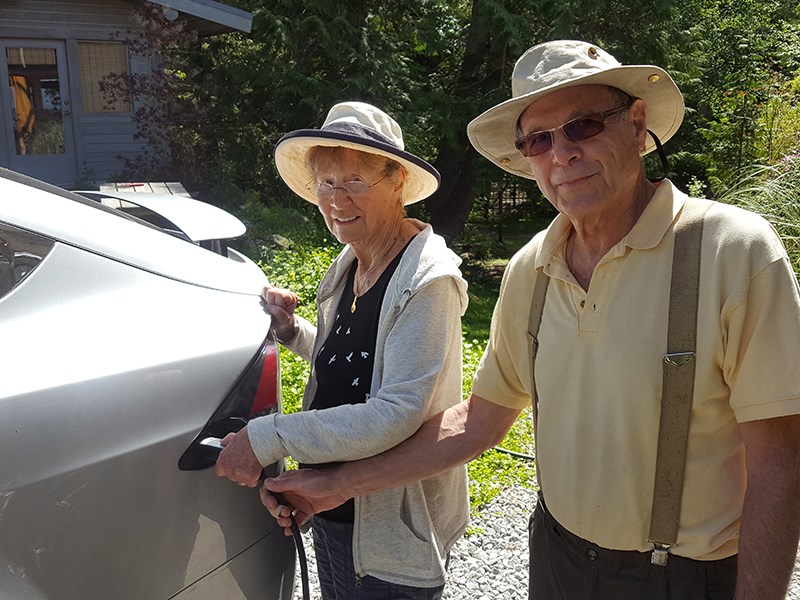In the flurry of paperwork being submitted for millions of dollars in new residential development, City of Powell River is encouraging builders to take steps toward going green.
Currently, the city’s planning department is using the power of rezoning and the discretion city council holds over it to recommend developers be required to build new homes solar, electric vehicle (EV) and, in some cases, solar-hot-water ready. This encompasses single family, duplexes, fourplexes, multi-unit apartments or condo units.
The planning department is facing some resistance from builders as to what “ready” actually means and the extra cost these energy efficiencies will add to construction and home sales, according to senior planner Jason Gow.
“There is some pushback out there right now,” said Gow, “and it's misinformation because people don't understand.”
Being ready is a matter of running conduit and wiring for eventual installation of solar power and EV charging stations.
Agius Builders principal Jim Agius, a major developer in Powell River, said, “This is not saying that you're putting solar panels on your house. It's just having it ready and making it easy to install the systems.”
Currently, Agius has two developments before council that will be built ready for solar and EVs: a 21-unit condo on Franklin Avenue and the 34-unit Sunset Homes on Joyce Avenue.
Other builders are taking the green lead on new developments, including the 23-unit Pacific Point Condos, Wys Headwaters on Cranberry Street and the proposed 112-unit apartment buildings where Manson Avenue, upper Nootka Street and Westview Avenue converge.
Agius said, in his experience, if a homebuyer has a choice of spending a few dollars more for future savings and the environmental benefits of a green-built house, or a less expensive bottom line at time of purchase, more often than not they will choose the less expensive home.
“There's definitely an advantage to building energy efficient homes,” said Agius. “Your energy costs are going to be lower and your comfort levels are going to be way higher in an energy efficient home; there’s no doubt about that.”
Builders who attain Built Green status on their developments also have a financial incentive from the city, according to Gow. Built Green is a certification program for sustainable and energy efficient home building.
As an example, for the new Wys Headwaters, the builder paid a development cost charge to the city of $7,600 per unit, said Gow.
“If they achieve their Built Green, we reimburse them that development cost charge,” said Gow.
If all 12 of the Wys Headwaters duplexes are completed, the developer will be reimbursed those funds.
“It’s close to $90,000,” said Gow.
But to become certified, Powell River developers need consultants to sign off that the homes are energy efficient.
“In order to build homes to a certain level, you need to work with an energy advisor, somebody who specializes in the design,” said Agius. “Not in the design of the home but in the design of the energy efficiency model of the home.”
However, there are no energy advisors based in the Powell River area. They have to be brought in from Victoria or Nanaimo.
While the city has not mandated new homes be built solar and EV ready, it is going in that direction, according to city sustainability committee chair and councillor CaroleAnn Leishman. She said a number of actionable items, recommendations and reports are pending that pertain to a blank policy “on all new development that they have solar-ready provisions in all new residential construction and electrical vehicle charging stations ready, and most recently, hot-water-ready provisions in new construction.”
City staff has been more vigilant to ensure each development proposal incorporates those energy sustainability initiatives.
“One day it will be written into our bylaws and it won't be a question or discussion,” said Gow, “but without it being there, nothing forces developers once they get the zoning.”



